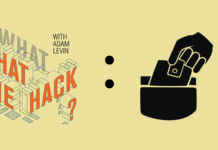

Given how often data breaches happen, it’s likely your personal information will be exposed, sold or abused, if it hasn’t yet been already. Identity theft takes many forms and can be difficult to prevent, but a new report suggests consumers should freeze their credit files as the “best protection against someone opening new credit accounts in your name.”
What are the pros and cons to that strategy?
How a Credit Freeze Could Help
Here’s how a credit freeze works: You contact one of the major credit reporting agencies — Equifax, Experian or TransUnion — and pay a fee to place a security freeze on your file. Once the freeze is in place, no one — not even you — can open a new credit account using your identity. If you need to get a new credit card, rent an apartment or do anything else that requires a credit check, you’ll have to “thaw” each credit report.
A report from U.S. PIRG Education Fund says putting a security freeze on your credit report is the best option for preventing new account fraud, because things like credit monitoring services and transactional monitoring of credit cards only alert consumers to fraud after it has occurred.
“Most creditors will not issue new credit to a customer if they cannot see that customer’s credit report or score derived from it from at least one of the three major national credit bureaus,” the report says. It goes on to note that some utility providers, cellphone companies and other service providers may not pull your credit before opening an account. As such, it’s good to be aware that a security freeze doesn’t guarantee protection from new account fraud entirely.
The Costs of Credit Freezing
A credit freeze can prevent serious fraud issues, but it’s not a cure-all for identity theft. It can also be costly. All states generally offer free freezes to victims of identity theft, but, beyond that, their laws vary and you could wind up paying $3 to $10 each time you proactively place a freeze on a report. Lifting the freeze could cost another $2 to $12, the report said, again, depending on the state you are in. (Keep in mind, you would have to freeze and subsequently thaw your credit report with each of the three credit bureaus to increase the odds of no one opening a credit account in your name.) In addition to the fees, you have to allow enough time for the freeze to lift, which can make things tricky if your credit report is frozen and you need to apply for new credit in an emergency.
 “A credit freeze is certainly a comprehensive way to at least stop people from opening new accounts in your name, no question, but it is a little cumbersome,” said Adam Levin, author of a new book on identity theft, Swiped, and chairman and co-founder of Credit.com.
“A credit freeze is certainly a comprehensive way to at least stop people from opening new accounts in your name, no question, but it is a little cumbersome,” said Adam Levin, author of a new book on identity theft, Swiped, and chairman and co-founder of Credit.com.
By law, it can take up to three days for your report to “thaw.” Alternately, you might consider placing a fraud alert on your credit reports, which is free and requires the credit reporting agencies to contact you when someone tries to open an account using your identity.
On top of all that, identity theft goes beyond new account fraud.
“[A credit freeze] doesn’t clue you into medical identity theft, criminal identity theft, tax-related identity theft, or if someone is crawling around in existing accounts,” Levin said. “That’s really the issue.”
Adding a security freeze to your credit reports can help protect your identity, but it’s still important to regularly review your free annual credit reports and various personal accounts for signs of abuse. You can get a free summary of your credit report every 30 days on Credit.com, as part of your identity-protection routine.
This article originally appeared on Credit.com and was written by Christine DiGangi.









